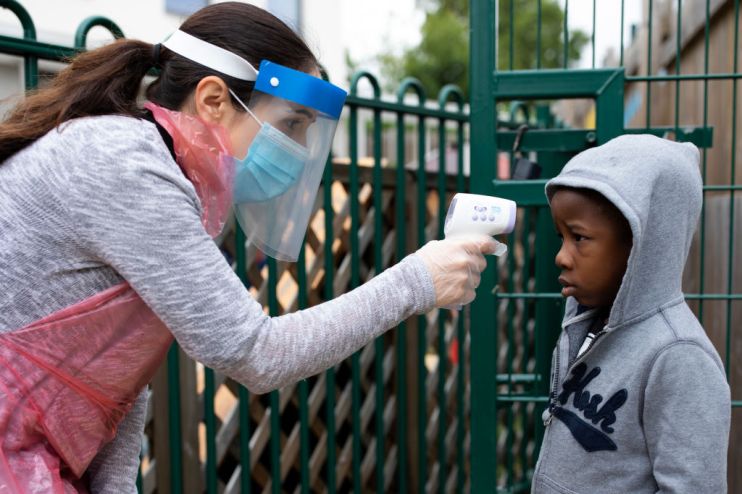We should mourn the immeasurable social and economic damage lockdown has inflicted on this country

I knew it was coming.
The torrent of media coverage looking back on 100 days of lockdown like a grossly nostalgic showreel. Carefully crafted articles painting a picture of British resilience and togetherness, celebrating the nation’s bravery and enjoyment of the simple things.
I regret to inform you that I will not be spending my day reminiscing the NHS clap, Captain Tom, or the resurgence of the pub quiz. I will be spending it in mourning.
For not only does today mark 100 days since our liberties were stolen. It marks 100 days of rising inequalities, countless avoidable deaths, and the ruin of a generation.
Throughout lockdown, trite parallels have been drawn between our fight against Covid-19 and our forefathers’ struggle against Nazi Germany. Comparisons with the war are largely invalid — except for one. The country now faces a degree of economic damage genuinely comparable with the costs of a major war.
To help finance its response, the government is set to borrow up to £350bn, sending the budget deficit to in excess of 100 per cent of GDP. In addition, substantial loans to private businesses, many of which will never be repaid, are cashing in at £100bn and rising.
Chancellor Rishi Sunak’s sophomoric furlough scheme will cost taxpayers over £60bn by its October deadline. Despite its good intentions, all the Coronavirus Job Retention Scheme has done is postpone the evil day of reckoning, at vast cost.
To summarise, a deep recession is coming — one which Office for National Statistics warns could cause as many as 12,000 avoidable deaths each year.
A large percentage of this disturbing figure will be down to lockdown-imposed poverty and long-term unemployment. But tragically, it also covers deaths surrounding mental health and suicide. With livelihoods upended, families under extraordinary stress and feelings of grief accentuated by isolation, a mental health crisis is looming.
Mental health issues affect everyone. The young whose social networks and job prospects ahve been destroyed have been particularly hard hit, but social isolation has intensified anxiety and depression so acutely among the elderly that suicide attempts in this group have seen as much as a six-fold rise. Domestic violence charities have warned of a sharp increase in cases during lockdown — killings have more than doubled and there will be an inevitable surge of victims seeking support when lockdown lifts.
On top of this, consider the hidden health costs of people fearful of seeking medical help for strokes, heart attacks and cancer symptoms. The British Heart Foundation warns that approximately 28,000 heart procedures have been delayed since the outbreak of the virus. Similarly, Cancer Research estimates that a staggering 2.4m people are waiting for screening, treatment or tests, with a potential 23,000 cancers having gone undiagnosed during lockdown.
For weeks we were told to stay at home, to protect our NHS and to save lives. This message was so successful that Britons dying of heart attacks were too afraid to get in an ambulance. The NHS now faces a waiting list of 10m — the worst it has ever seen.
The most devastating effects will be felt by the young. As our leaders wrangle over which businesses to open next, our children have been missed off the national list of priorities. The social and educational development of a whole generation is being damaged — and what for? SAGE documents, only reluctantly released thanks to my Judicial Review, state loud and clear that the virus poses little risk to children and that closing schools does next to nothing to prevent the spread of Covid-19.
What’s more, responding to my legal enquiry into school closures, government defence lawyers stated that it was merely a “request” for schools to shut their doors, not an order. Our leaders are stooping to the low level of word trickery to avoid any culpability. Yet the blame for millions of children having had their education set back and the £22bn school closures have cost the economy sits firmly on their shoulders.
So much harm could have been prevented had our leaders not spent weeks dithering over the reduction of the two-metre rule. Scrapping this measure allows schools, businesses and tourism to open, unlocking swathes of the economy. So why on earth has it taken Boris Johnson this long? Perhaps some party incumbent finally spoke to him in a language he could finally understand — “audentes fortuna iuvat”.
As measures begin to be relaxed, there is a collective sigh of relief across the nation, but I wouldn’t celebrate just yet. Businesses are right to be cautious of “one metre plus”. This rule will be near impossible for busy venues to monitor, leaving them fearful of being shut down by police.
Reports also suggest that when pubs reopen on Saturday, visitors may need to sign a register before going in for a pint. What is this new world we live in? The British pub is the ultimate symbol of freedom. With these new rules, even a visit to your local will have echoes of life under a communist dictatorship.
Enough is enough. Lockdown and its frightening repercussions are in some ways more deadly than the virus itself. Nobody will emerge from this untouched by its effects. Tomorrow, my Judicial Review of the government’s actions will challenge the legality of the restrictions we have been subjected to in the High Court.
The government must be held accountable. Most importantly, lockdown can never be allowed to happen again.
Main image credit: Getty